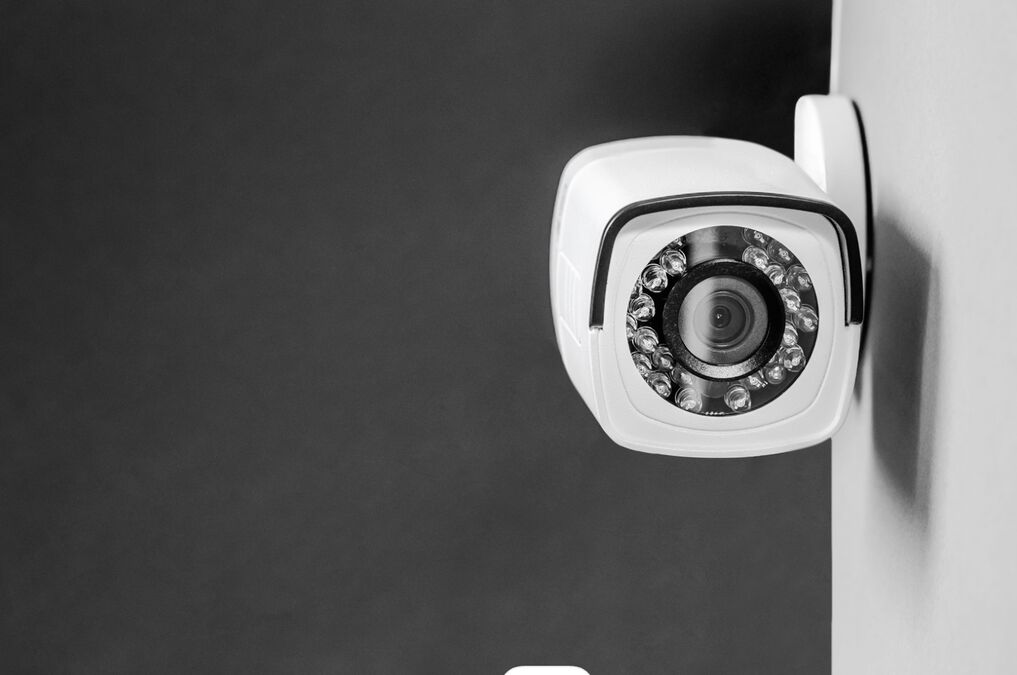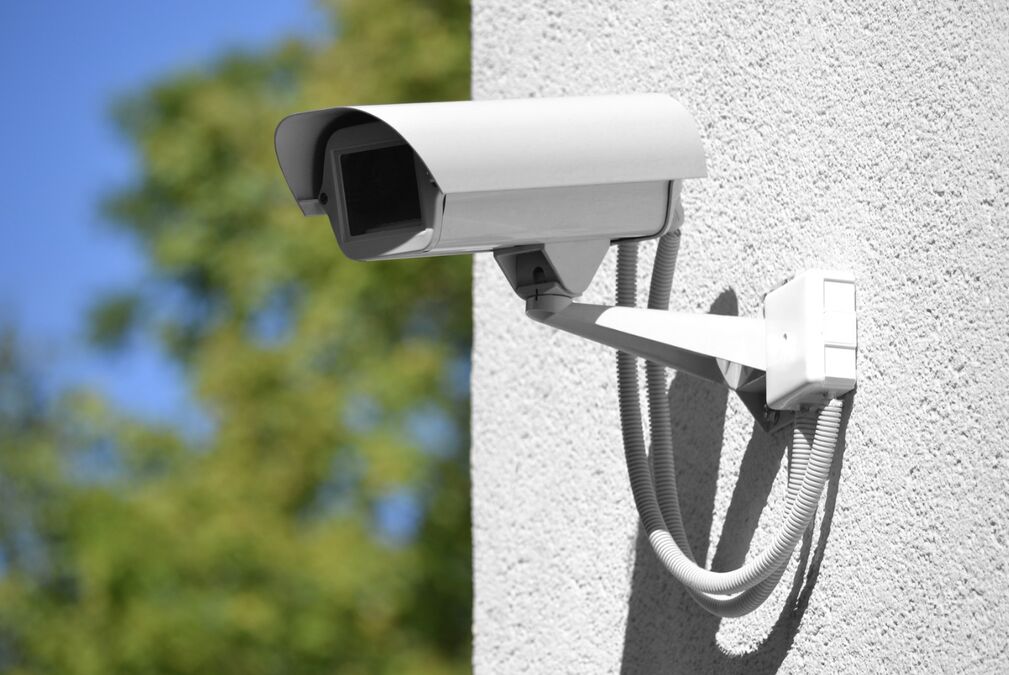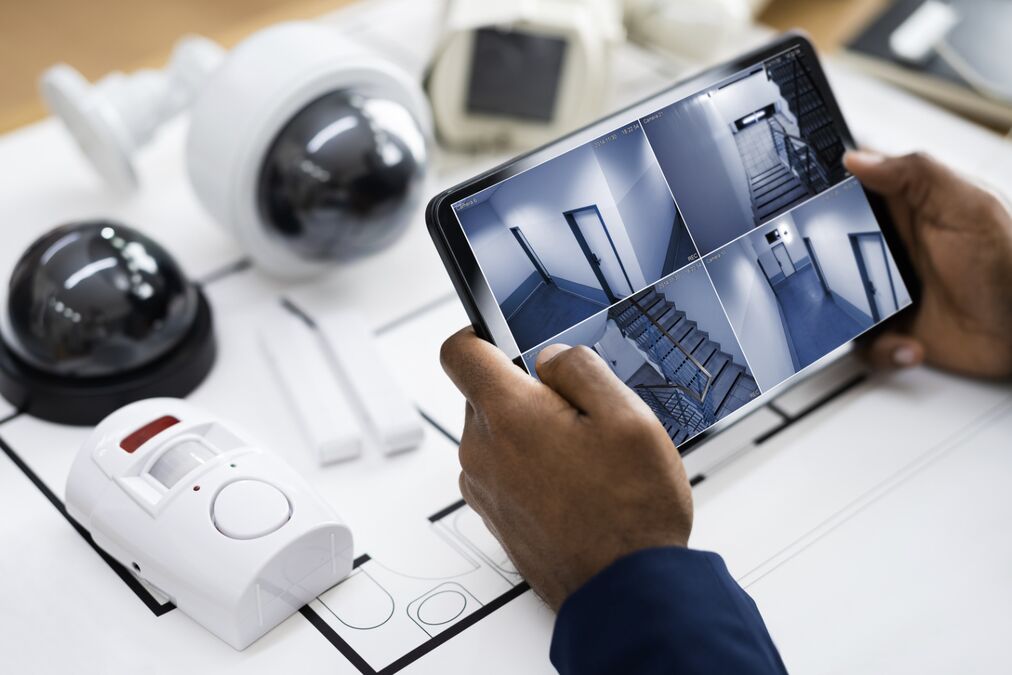
Book your free smart home consultation today
Find out more
Book your free smart home consultation today
Find out moreAs a homeowner, you may be wondering where the best place to put your CCTV cameras is. You want to make sure they are placed in strategic locations in order to deter burglars and catch them in the act if they do break in.
However, there are rules about pointing your cameras at a public place or onto a neighbours property. When setting up your home CCTV system, you also need to ensure that the CCTV camera placement is only covering private property, unless you have shared spaces that need to be protected. This will help to deter would be thieves and make it difficult for them to gain access without being caught on the CCTV footage.
The introduction of video equipped doorbell devices makes the introduction of CCTV to your property easier than ever before. It also means that you can easily point your CCTV camera at a busy street without worrying about the legal obligations. In this blog post, we will share some tips on where to place your CCTV cameras for optimal security.

CCTV cameras offer unparalleled protection for homes and businesses, as they are capable of monitoring any area without the need for manual surveillance. Knowing how to direct your camera in the right way is essential if you invest in this technology.
Lucky for you, it's easy – essentially, all you need to do is make sure the security cameras are pointing in the desired direction and that its lens has been properly adjusted. Always check the footage to ensure you have a clear field of vision.
Try to keep your cameras away from branches and trees which could sway and make it difficult for capturing images. You should also look at different times of the night to check for bright glare from street lights or security lights as this could limit the effectiveness of night vision.
If you have had past break ins, you'll want to think about the previous point of entry and how to protect this space. Obscured windows can be easily made more secure by pointing a security camera at the space. When installed correctly, cameras capture images that are clear and can be used as evidence in the event of a break in.
Once you've done that, your CCTV camera can be used to capture any activity taking place within its field of view. With regular maintenance and a proper setup, security cameras can remain effective at keeping an eye out for years at a time.

It is always important to stay vigilant of your home's entrances and exits, as well as the valuable items that may be inside. Keeping an eye on these items and locations not only helps to ensure their safety but can also give you peace of mind.
Security cameras and CCTV systems can help to deter thieves, but they can also give them clues as to where your valuables are. Strategically placed security cameras alongside security lights can help to protect vulnerable spots such as dimly lit areas, front doors, driveway or garage area. Don't forget to think about how thieves might gain entry through a second floor if you have outside elements such as a balconies or trees that could be easily climbed.
Make sure to take extra precautions in areas that you cannot see directly and consider investing in a new security system for added protection. Taking the necessary steps to secure your home can provide long-term benefits and could potentially save you from having to replace or repair stolen or damaged goods
If you have wireless CCTV cameras, be sure to place them high up and out of reach to avoid anyone tampering with them. Having wireless CCTV cameras installed can help provide invaluable footage in the event of a security breach or other issue.
To ensure that your footage remains reliable, it's important to be mindful of proper placement. Be sure to place your cameras up high and out of reach, as doing so can prevent anyone from tampering with or otherwise disabling them.
By placing your cameras at an elevation, you'll also reduce their visibility from the ground, adding an extra layer of security. Furthermore, making sure that no one can access and move your security camera around ensures that you remain informed about any potential threats in the surrounding area.

Keeping your security camera footage safe is an important step in protecting the privacy of those being monitored and making sure the footage can be used if necessary. Storing CCTV system footage on a secure server or hard drive with restricted access makes it impossible for hackers and unauthorised users to access any sensitive data.
Not only that, but having control over where your footage is stored means you remain in compliance with regional digital data protection laws; something that could prove expensive if ignored. Above all else, it gives you peace of mind knowing that you will always have a reliable source of CCTV system evidence should it ever be needed.
It's important to keep an eye on what's happening around your property, and one way to do this is to review your footage regularly. This can help you identify any suspicious activity or people who could pose a threat.
Taking the time to review security footage can help you be extra vigilant in protecting yourself and your belongings, so it's highly recommended exercise if you are taking multiple security measures.
It may even help serve as evidence for police officers should anything unfortunate take place on your property. Keeping an eye out is always better than being caught off guard.
In some locations, data protection laws exist to protect the privacy of those being monitored by a CCTV system. Depending on where you live and your specific circumstances, you may be required to display signs that indicate surveillance is taking place.
These laws also restrict how long footage can be held for before it needs to be deleted and who has access to it. In the UK, the Data Protection Act and General Data Protection Regulation (GDPR) sets out the rules for how personal data can be used, stored and processed.
It's important to familiarise yourself with applicable laws in your area – such as the Data Protection Act– to ensure that you are compliant before installing CCTV cameras. Doing so can help protect against any potential legal issues that may arise from improper use of security cameras.
Home security is important, and CCTV cameras are a great way to deter criminals and keep your property safe. By following the tips in this blog post, you can be sure that your CCTV system is effective and secure. If you have any questions about home security or choosing the right CCTV system for your needs, please contact us. We're always happy to help our customers keep their homes and families safe.
Are you ready to live in a smart home? Please leave your details below and a member of our team will be in touch to book a FREE consultation and talk you through the possibilities for your new SMART home.



